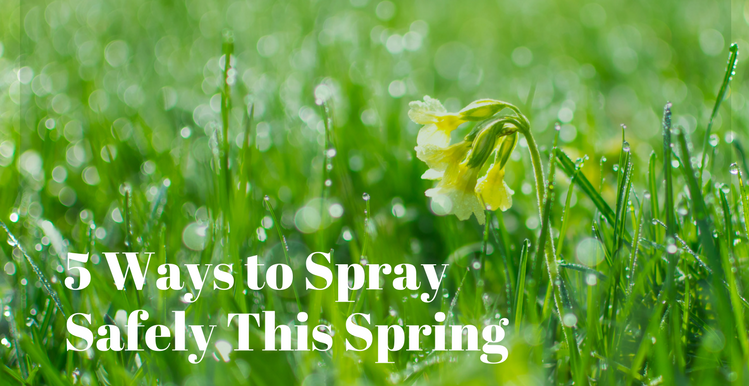
5 Ways To Spray Safely This Spring
Ready to get a jump on weed and pest control? Keep these five things in order to spray safely.
1. Use the recommended concentration.
Always use the recommended concentration of herbicide based on the area to be covered and the spraying device. Use too little, and you’ll have to spray again. Use too much, and you’ll be exposing yourself and the environment to more harm than good. Read the directions twice and fill accordingly.
2. Wear protection.
Always wear protective clothing when handling herbicides and pesticides. Clothing that is exposed to these chemicals must be treated separately from other laundry, so take great care to minimize this exposure. This protection extends to other areas as well. Cover bee hives, feed pans, watering tanks, and troughs prior to application.
3. Take notes.
While following the safety precautions on the label, log the date, time, amount, and location each herbicide and pesticide as used. Smartphones are a great way to record this data to keep for future use.
4. Mind the drift.
We wish this went without saying, but it bears repeating. Do not spray chemicals on a windy day. There is no way to account for the drift or dust range, and the risk is too high for incorrect exposure.
5. Maintain your equipment.
Sprayer cleanup and cleanout is necessary to prevent spray contamination and to prolong the life of the equipment, especially if the same sprayer is used for a variety of crops. There are a variety of products and solutions on the market to help with this process.
Herbicides used in accordance with their labels are typically harmless to animals. Problems may occur if animals graze on treated plants that have started the decaying process; the increased nitrate levels can make grazing animals ill. Give sprayed pastures a few days to rest or be rinsed with rain.
Have more questions? Let us know here.